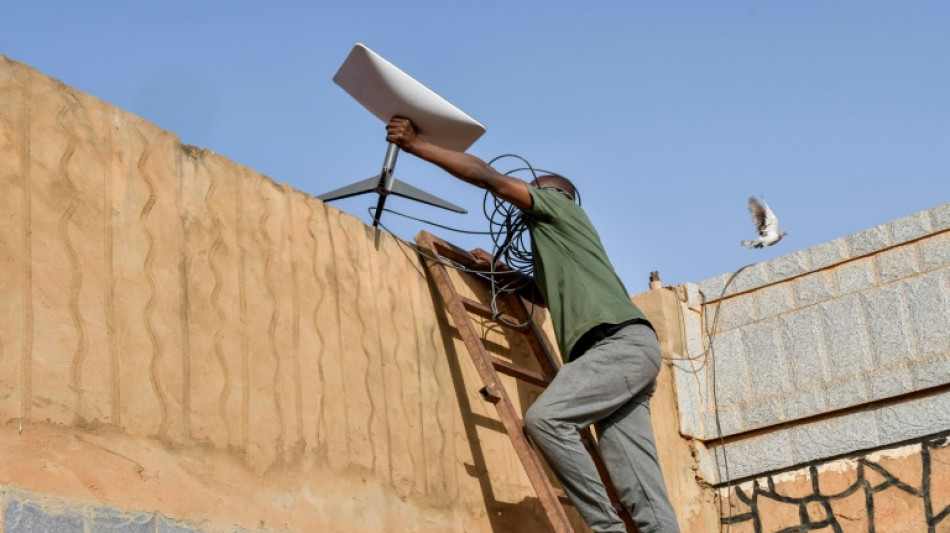
-
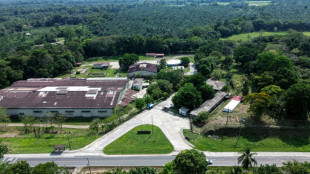 Justice orders release of migrants deported to Costa Rica by Trump
Justice orders release of migrants deported to Costa Rica by Trump
-
Vietnam tycoon will not face death penalty over $27 bn fraud: lawyer
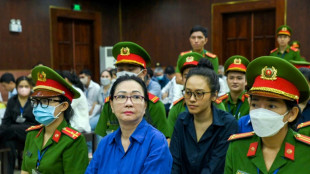
-
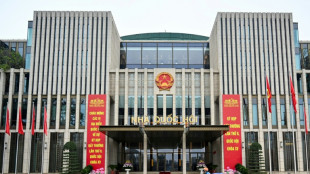 Vietnam abolishes death penalty for spying, anti-state activities
Vietnam abolishes death penalty for spying, anti-state activities
-
Over 80,000 people flee severe flooding in southwest China
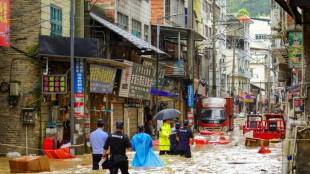
-
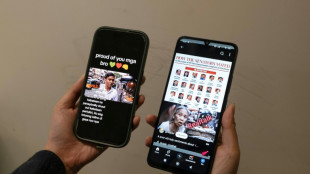 AI fakes duel over Sara Duterte impeachment in Philippines
AI fakes duel over Sara Duterte impeachment in Philippines
-
UK carbon emissions cut by half since 1990: experts
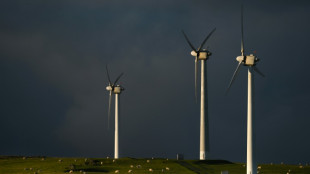
-
 Delap off mark as Chelsea ease into Club World Cup last 16
Delap off mark as Chelsea ease into Club World Cup last 16
-
UK to reintroduce nuclear weapon-capable aircraft under NATO
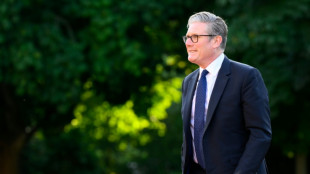
-
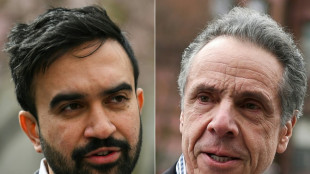 Upstart socialist stuns political veteran in NYC mayoral primary
Upstart socialist stuns political veteran in NYC mayoral primary
-
China's premier warns global trade tensions 'intensifying'
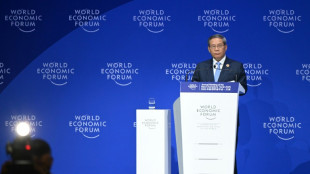
-
 Chelsea through to Club World Cup knockouts, Benfica beat Bayern
Chelsea through to Club World Cup knockouts, Benfica beat Bayern
-
Cummins says Green 'long-term option' as Australia face new-look Windies

-
 Chelsea east past Esperance and into Club World Cup last 16
Chelsea east past Esperance and into Club World Cup last 16
-
Stocks rally as Iran-Israel ceasefire holds, oil claws back some losses
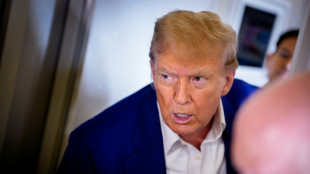
-
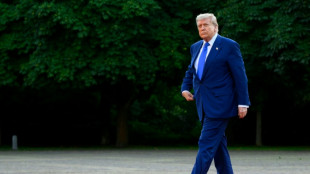 Trump whirlwind to test NATO summit unity
Trump whirlwind to test NATO summit unity
-
Israel claims victory as US intel says Iran nuclear sites not destroyed
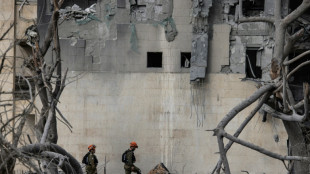
-
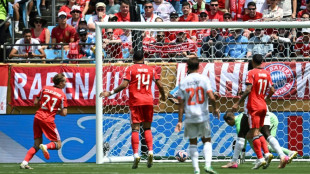 Benfica beat Bayern at Club World Cup as Auckland City hold Boca
Benfica beat Bayern at Club World Cup as Auckland City hold Boca
-
RFK Jr's medical panel to revisit debunked vaccine claims
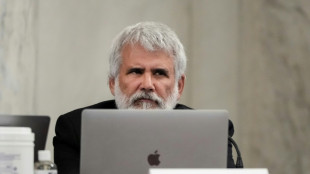
-
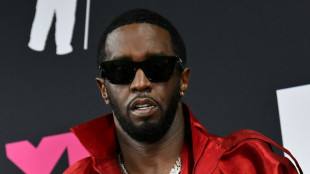 Sean Combs trial: Takeaways from testimony
Sean Combs trial: Takeaways from testimony
-
Messi and Miami relishing reunion with PSG and Enrique
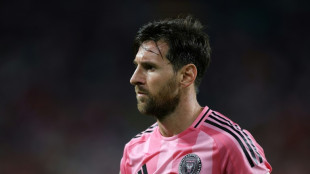
-
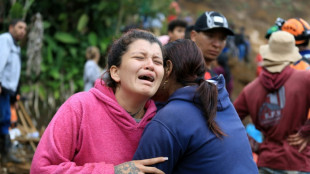 At least 10 dead in Colombia landslide
At least 10 dead in Colombia landslide
-
Extreme heat, storms take toll at Club World Cup

-
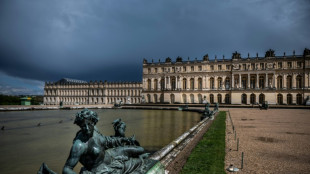 France's Versailles unveils AI-powered talking statues
France's Versailles unveils AI-powered talking statues
-
Child vaccine coverage faltering, threatening millions: study
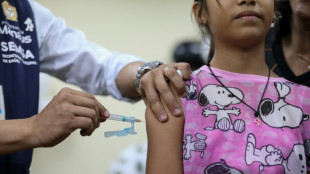
-
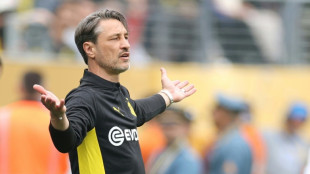 Club World Cup winners team who handles weather best: Dortmund's Kovac
Club World Cup winners team who handles weather best: Dortmund's Kovac
-
FIFA launch probe into Rudiger racism allegation

-
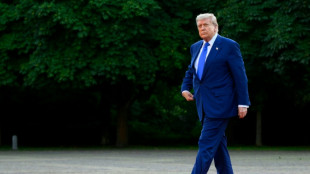 Trump rattles NATO allies as he descends on summit
Trump rattles NATO allies as he descends on summit
-
Three things we learned from the first Test between England and India

-
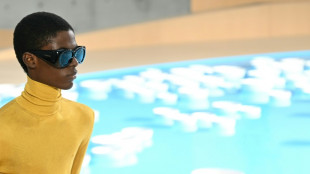 Saint Laurent, Vuitton kick off Paris men's fashion week
Saint Laurent, Vuitton kick off Paris men's fashion week
-
Amateurs Auckland City hold Boca Juniors to Club World Cup draw

-
 Neymar signs for six more months with Santos with an eye on World cup
Neymar signs for six more months with Santos with an eye on World cup
-
Grok shows 'flaws' in fact-checking Israel-Iran war: study
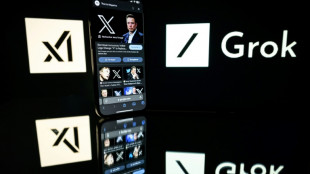
-
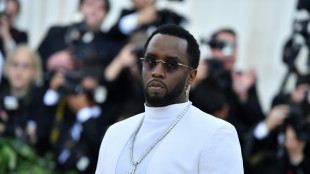 Both sides in Sean Combs trial rest case, closing arguments next
Both sides in Sean Combs trial rest case, closing arguments next
-
Benfica beat Bayern to top group C

-
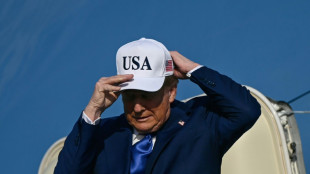 Trump plays deft hand with Iran-Israel ceasefire but doubts remain
Trump plays deft hand with Iran-Israel ceasefire but doubts remain
-
England knew they could 'blow match apart' says Stokes after India triumph
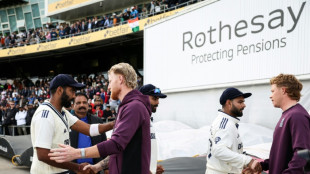
-
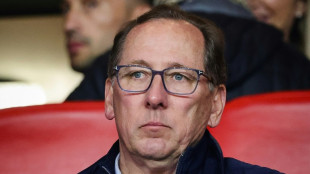 Lyon appeal relegation to Ligue 2 by financial regulator
Lyon appeal relegation to Ligue 2 by financial regulator
-
US intel says strikes did not destroy Iran nuclear program
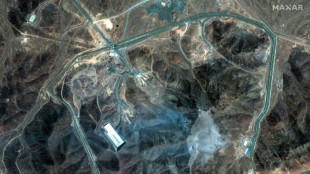
-
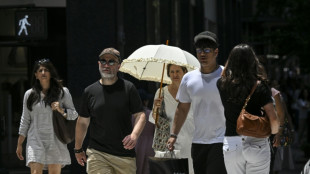 Nearly half the US population face scorching heat wave
Nearly half the US population face scorching heat wave
-
Israel's Netanyahu vows to block Iran 'nuclear weapon' as he declares victory
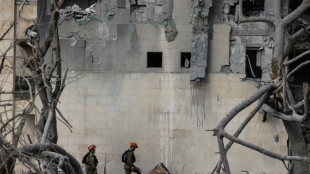
-
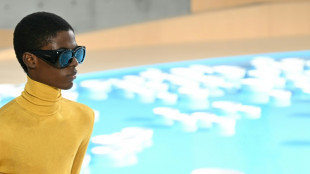 Saint Laurent kicks off Paris men's fashion week
Saint Laurent kicks off Paris men's fashion week
-
Arbitrator finds NFL encouraged teams to cut veteran guarantees: reports

-
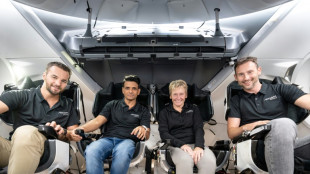 India, Poland, Hungary make spaceflight comeback with ISS mission
India, Poland, Hungary make spaceflight comeback with ISS mission
-
Piot, dropped by LIV Golf, to tee off at PGA Detroit event

-
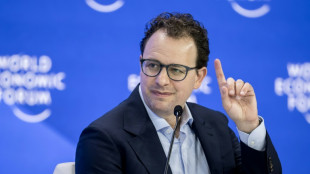 US judge backs using copyrighted books to train AI
US judge backs using copyrighted books to train AI
-
Russian strikes kill 19 in Ukraine region under pressure
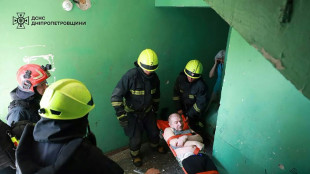
-
 Raducanu's tears of joy, Krejcikova survives match points at Eastbourne
Raducanu's tears of joy, Krejcikova survives match points at Eastbourne
-
Duplantis dominates at Golden Spike in Czech Republic
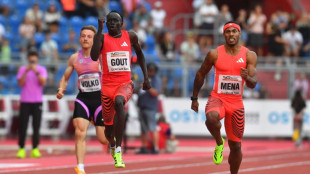
-
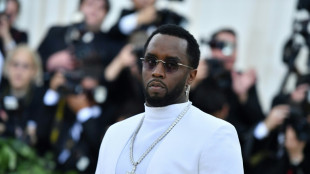 Prosecutors of Sean Combs rest their case, eyes turn to defense
Prosecutors of Sean Combs rest their case, eyes turn to defense
-
Duckett and Root star as England beat India in thrilling 1st Test
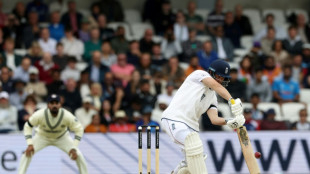

Niger turns to satellites to bridge digital divide
Less than a third of Niger's vast territory has internet access, so the west African country is betting on satellite broadband to bridge the digital divide in remote rural areas.
The patchy coverage is mostly down to a lack of investment and the destruction of relay antennae by the numerous armed groups active in the country, according to electronic communications regulator ARCEP.
In November, Niger's military rulers granted a five-year contract with US billionaire Elon Musk's company Starlink to provide high-speed internet access across the Sahel state.
It is one of around 15 African countries to have authorised the use of Starlink's thousands of satellites on their territory.
"Essential services that drive economic development -- banks, hospitals, schools, the energy and farming sectors -- all rely on the internet and data," said economist Ibrahim Adamou Louche.
Communications Minister Sidi Ahmed Raliou predicted the move would provide internet access to "about 80 to 100 percent" of Niger -- 1,267 square kilometres (490 square miles) largely covered by desert plains and sand dunes.
The deal is lucrative for the US company.
In a country where almost 50 percent of the population earns less than a dollar a day, according to the World Bank, users who want internet access must pay between 260,000 and 400,000 CFA francs ($414 and $637) for the satellite firm's necessary basic equipment.
- Big in the country -
The drive to access the internet has also spawned illicit operations.
The equipment, much of it imported from neighbouring Nigeria, is sometimes brought across the border illegally.
Users who cannot afford the equipment must pay the US company for one-off access to the internet for a limited amount of time.
"On market days especially, people congregate round the wifi router," said Moussa Djibrilla, a secondary school teacher in the rural western community of Mangaize.
Much of the enthusiasm for satellite broadband comes from remote areas, said vendor Ali Sat.
In the capital, Niamey, sales of equipment have not so far taken off and only a handful of homes are connected, he added.
In rural areas, the situation is different.
Technician Moumouni Harouna said the biggest demand for satellite internet equipment came from people "out in the bush" who liked it because "they don't lose connection".
- Elusive signal -
"We're back in civilisation," grinned Alfa Hama, a villager in the western hamlet of Gorou, near the border with Mali, where the local phone and internet relay antennae were destroyed eight years ago.
"We don't need to go six kilometres and climb to the top of a hill to get an elusive signal any more," he said. "The wifi is right here."
For a price, high-speed internet access is now available in some parts of the Tenere desert, through which travellers pass, alongside thousands of migrants seeking to make the perilous journey out of one of the world's poorest countries and through Libya towards the El Dorado of Europe.
In Tabelot, a little further south, illegal gold mining operations, markets and the long-distance bus station all offer connection points for those who can pay.
Local Touareg chief Youssaf Houssa said whole neighbourhoods sometime clubbed together to afford a piece of communal satellite equipment.
"People are able to come together more thanks to WhatsApp groups and do business online," he said.
Niger's four long-standing telecommunications operators, who are often criticised for the quality of their services, are less than keen to see the military rulers embrace the new US competitor.
"Satellite solutions complement what we do but they can't replace the advantages we offer in terms of cost, performance and personal service," said a senior official from one of the operators, asking to remain anonymous.
M.Qasim--SF-PST
